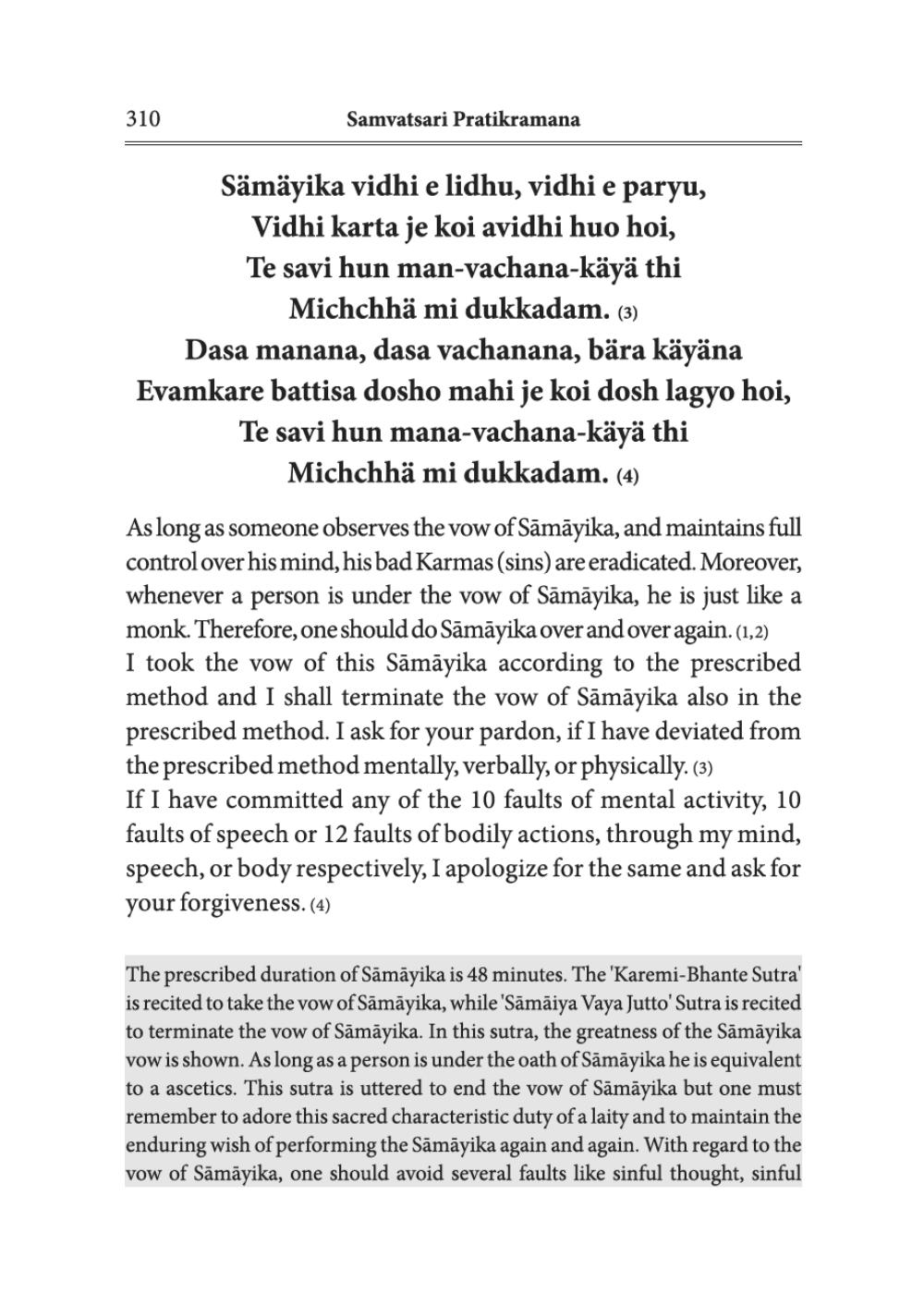________________
310
Samvatsari Pratikramana
Sämäyika vidhi e lidhu, vidhi e paryu, Vidhi karta je koi avidhi huo hoi, Te savi hun man-vachana-käyä thi Michchhä mi dukkadam. (3)
Dasa manana, dasa vachanana, bära käyäna Evamkare battisa dosho mahi je koi dosh lagyo hoi, Te savi hun mana-vachana-käyä thi Michchhä mi dukkadam. (4)
As long as someone observes the vow of Sāmāyika, and maintains full control over his mind, his bad Karmas (sins) are eradicated. Moreover, whenever a person is under the vow of Sāmāyika, he is just like a monk. Therefore, one should do Sāmāyika over and over again. (1,2) I took the vow of this Sāmāyika according to the prescribed method and I shall terminate the vow of Sāmāyika also in the prescribed method. I ask for your pardon, if I have deviated from the prescribed method mentally, verbally, or physically. (3) If I have committed any of the 10 faults of mental activity, 10 faults of speech or 12 faults of bodily actions, through my mind, speech, or body respectively, I apologize for the same and ask for your forgiveness. (4)
The prescribed duration of Sāmāyika is 48 minutes. The 'Karemi-Bhante Sutra' is recited to take the vow of Samayika, while 'Samaiya Vaya Jutto' Sutra is recited to terminate the vow of Sāmāyika. In this sutra, the greatness of the Sāmāyika vow is shown. As long as a person is under the oath of Sāmāyika he is equivalent to a ascetics. This sutra is uttered to end the vow of Sāmāyika but one must remember to adore this sacred characteristic duty of a laity and to maintain the enduring wish of performing the Sāmāyika again and again. With regard to the vow of Sāmāyika, one should avoid several faults like sinful thought, sinful




